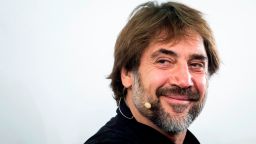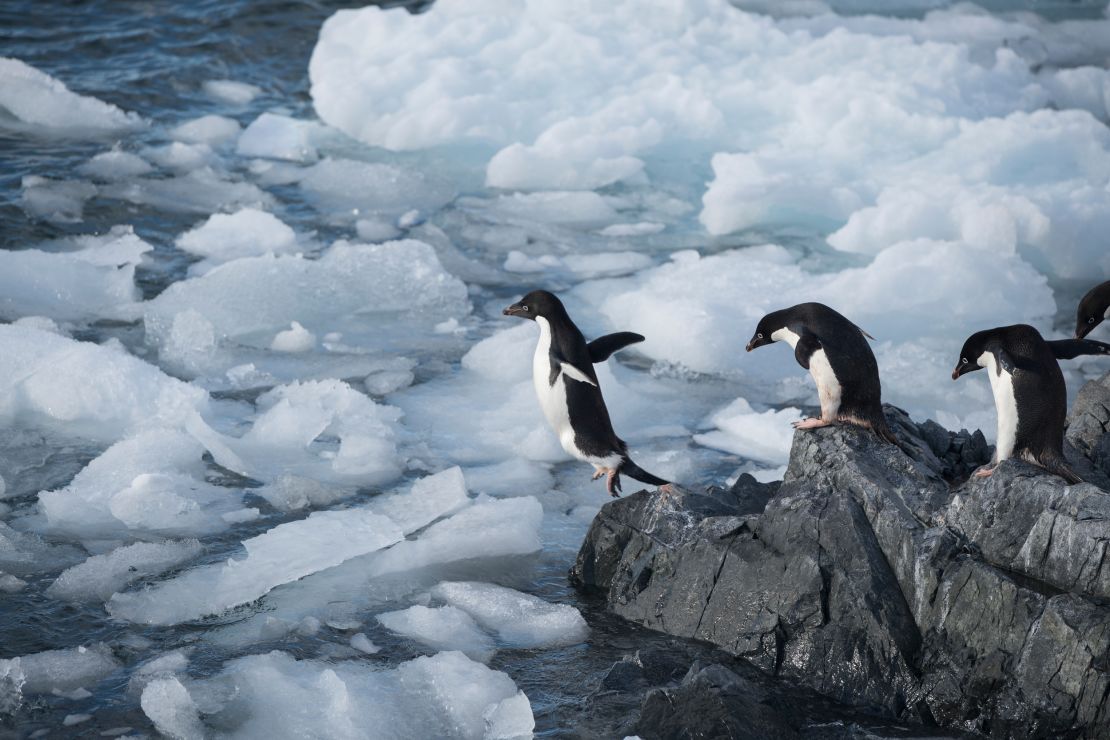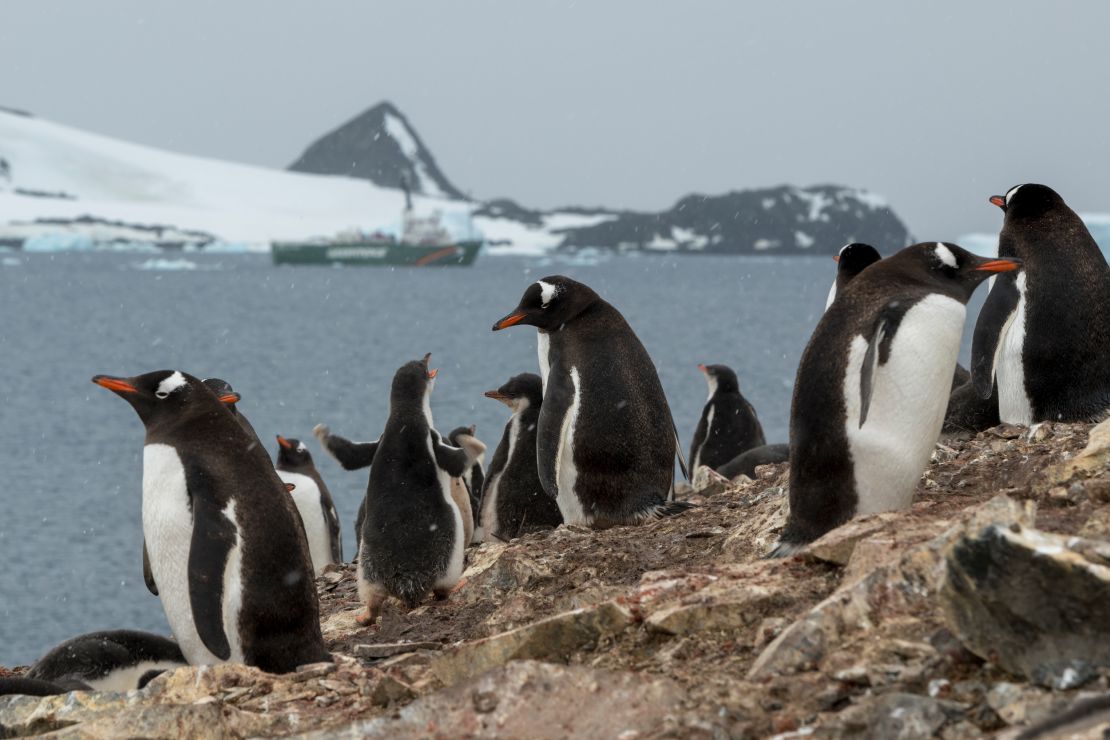Editor’s Note: Javier Bardem is an Oscar-winning actor who has joined Greenpeace’s expedition to the Antarctic to call for the creation of the largest wildlife reserve on Earth: an Antarctic Ocean Sanctuary covering 1.8 million square kilometres. The opinions in this article belong to the author.
I have a picture in my head. It’s impossible to fully convey, but it is a part of me.
I am sitting in a secluded bay. My hands are resting on the sand as a breeze drifts over the blue-green ripples by the shore. Boulders thrust out of the sea. They are teeming with small black and white penguins, waddling across the rocks and dropping into the ocean. It is magical: a window onto a little world which will continue long after I leave.
Twenty years later, this image now exists only in my head and in my heart.

You’re probably reading this on your phone. Or maybe your computer screen. The world around you is frozen. The light of your screen is your focus. You are removed from your surroundings.
Screens are so often our window onto the world. We filter the infinite currents of information and images through them. They shape how we think and they catalogue our experiences.
That’s why I’ve never been on social media. And it’s also why I’ve just joined social media.
Right now, the window I’m looking through is not a screen. It’s round. It’s a porthole on a ship, and a portal to a majestic world of towering ice and shimmering sea and an abundance of life.
I’m lucky enough to be directly experiencing the Antarctic and the vast blue wonder of its ocean. Penguins are plunging into the water, just like in my memory of Boulder Beach in Cape Town. If I’m even luckier I’ll see the great whales, leopard seals and a whole other existence down at the bottom of our planet. It feels a lifetime away from my home in Madrid.
Which brings me back to social media. Last week I joined Twitter and Instagram – not to share updates about my breakfast – but to share this journey I am taking to the end of the Earth.

I’ve joined a Greenpeace expedition to bring the incredible diversity of life in the Antarctic closer to home for people who may never get a chance to see it. Because we’re all connected to what happens here, even if we don’t know it.
And I want to use social media to urge you to join me. To join me not just on this voyage, but in a mission to create the largest wildlife reserve that the world has ever seen: an Antarctic Ocean Sanctuary.
This planet is a blue planet. Two-thirds of it is covered by seas which produce so much oxygen that they give us every second breath we take. The oceans are far bigger than every continent combined, but climate change, pollution and overfishing are killing them.
Now for the good news. This year we have an opportunity to create the largest protected area on Earth in the Antarctic Ocean. It would not only protect the vibrant life here, like Emperor penguins and blue whales, but it would ensure a healthy ocean to help mitigate against the worst effects of climate change. It would be over three times bigger than my home country of Spain and 200 times the size of Yellowstone National Park.
It would mean humans couldn’t exploit the area, like the fishing vessels which catch Antarctic krill, a tiny creature like a shrimp which is one of the most important species in the food web down here, eaten by Adélie penguins, humpback whales and almost everything else.
The proposal to create this vast marine reserve is being put forward by the EU when the Antarctic Ocean Commission meets this October. It covers a huge area in the Weddell Sea and around the Antarctic Peninsula, which otherwise could see expansion by the krill fishing industry to make products like Omega 3 fish oil and feed for fish farms.

In this region, where marine life is already under acute pressure, these vessels could end up competing for food with penguins and whales, in the foraging grounds they rely on.
Beyond protecting marine life, scientists are only just beginning to understand the crucial role that healthy oceans play in avoiding the worst impacts of climate change, as oceans act as carbon sinks. This process could be even more significant in the polar regions.
The members of the Antarctic Ocean Commission, including the US, EU, Russia and China, have already shown that they can put aside their differences for the sake of our oceans. Just last month a massive marine reserve came into force in the Ross Sea in the Antarctic. It was a triumph of international cooperation and will have a tremendous impact in safeguarding marine life. But if we’re to rise to the challenges the oceans are facing, we have to think even bigger.
I have an image in my head. It’s a huge expanse of pristine sea and ice, of bustling penguin colonies, and a safe haven for blue whales: the largest animals the world has ever known. It is a natural world free to thrive because we have allowed it to, and because as a race, we humans know the impact that we can have. It’s a vision to protect the Antarctic.
An image in your head and in your heart is a powerful thing. And I would like to offer you mine.



